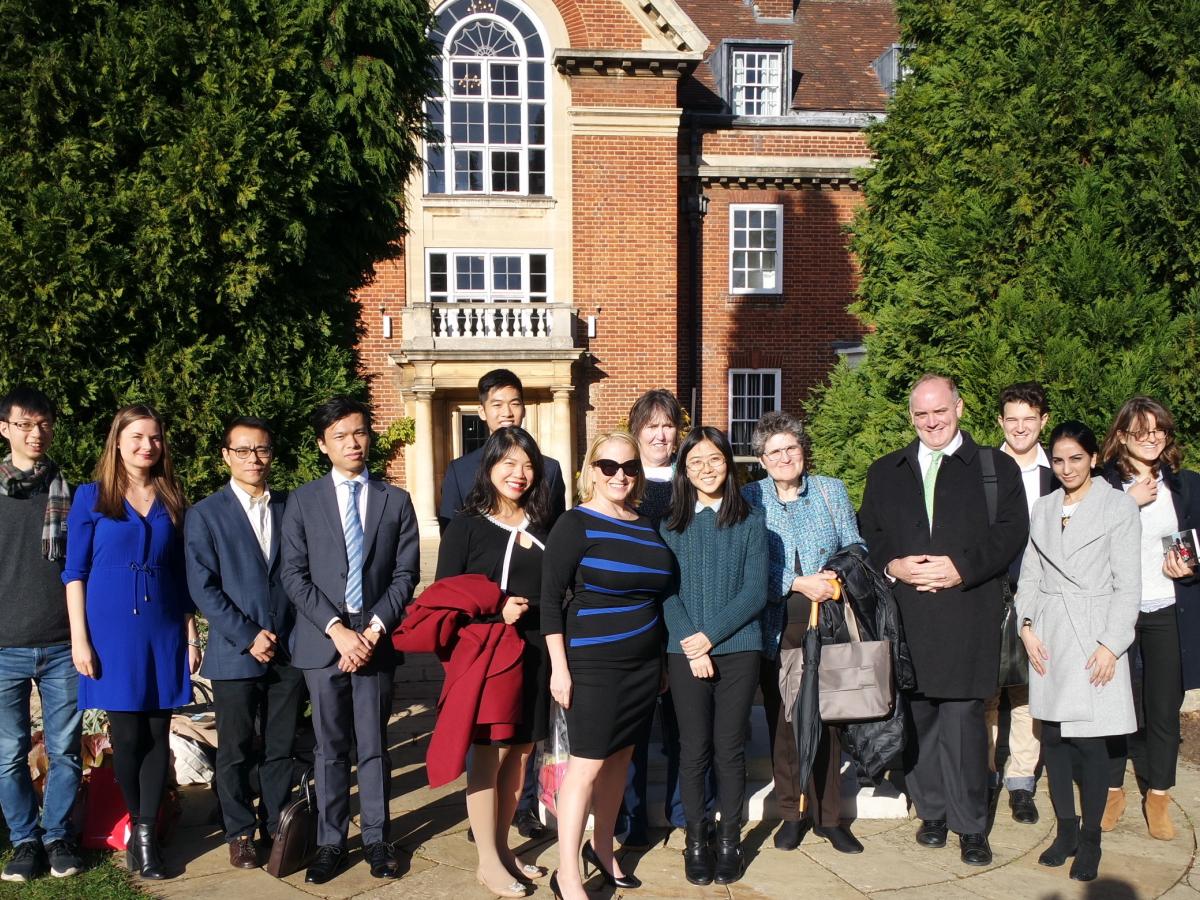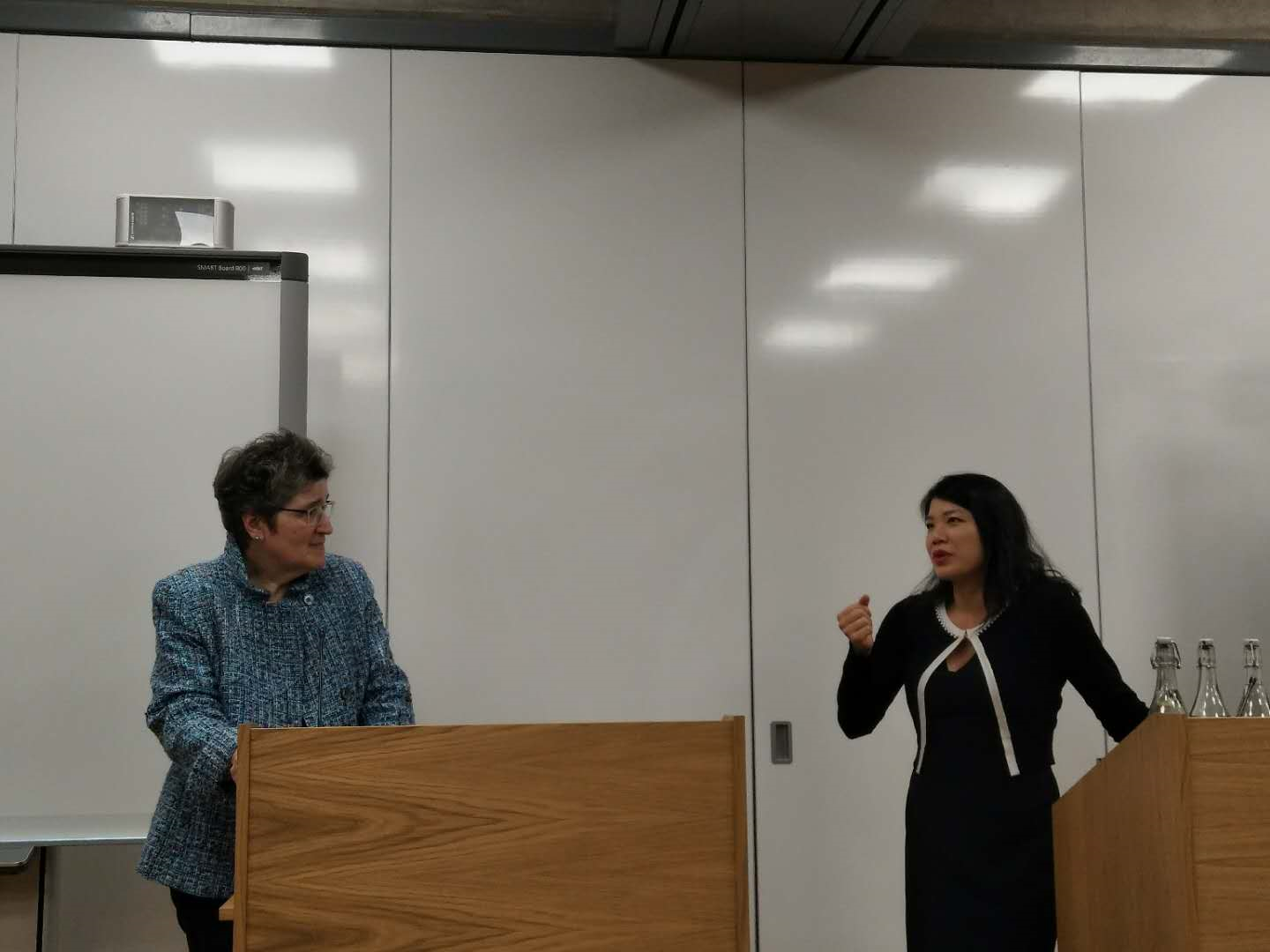Skadden Oxford Chinese Law Discussion Group Hosts Former Chief/General Counsel of the Asian Infrastructure Investment Bank

We were delighted to welcome Natalie Lichtenstein, former Chief Counsel and inaugural General Counsel of the Asian Infrastructure Investment Bank (AIIB), to speak at a special meeting of the Skadden Oxford Chinese Law Discussion Group on Monday 12 November 2018. Also attending the meeting were senior representatives from Skadden, Arps, Slate, Meagher & Flom, a leading global law firm headquartered in New York, which sponsors the Chinese Law Discussion Group.
The AIIB opened for business in 2016, as a $100 billion multilateral development bank (MDB) that finances public and private infrastructure projects for Asia. Its founders, led by China, first spanned Asia, Europe and the Middle East. Now, the AIIB’s footprint is global. The birth of this new international financial institution has drawn comparisons and contrasts with its counterparts, including the World Bank, Asian Development Bank, and European Bank for Reconstruction and Development. Drawing on her experience in setting up the AIIB as well as three decades of working as a lawyer in MDBs (advising on China-related issues), Ms Lichtenstein addressed a key question of “How does AIIB reflect the heritage of these counterparts and the innovation of the 21st century?”

Ms Lichtenstein then examined the AIIB’s structure, which comparable to but also different from many other MDBs. Its operational policies with respect to environmental and social framework, open procurement, anti-corruption, public transparency and finance are comparable to other MDBs, which is partly because of the practical need for co-financing with other banks given AIIB’s small-sized staff body and the huge amount of risks associated with large investment projects. Like other MDBs, AIIB also has a three-tier governance structure consisting of Board of Governors, Board of Directors, and President. Several arrangements in AIIB’s internal governance, however, distinguish it from other MDBs. For example, the AIIB Board of Directors not only has the explicit authority to establish the policies of the Bank, but also can delegate its authority on deciding financing operations to the President. The AIIB’s voting structure is tied to shareholding but somewhat less so than in many other MDBs. As certain important decisions require 75% majority and China’s current voting power is about 26%, China’s support is still crucial for these decisions.
Ms Lichtenstein talk was one of three meetings that the Skadden Oxford Chinese Law Discussion Group organised in Michaelmas Term by the group convenor Dr Mimi Zou and her team. We also welcomed Tim Clissold, writer of best-selling books on Chinese business such as Mr. China, who spoke on corporate governance challenges of Chinese firms. We also had an engaging talk by Prof. Kerry Brown from King’s College London who spoke on Justice, Ethics, and a new Social Contract in China. All of these meetings were extremely well-attended, with Prof. Brown’s talk attracting over 110 participants in a packed-out lecture theatre at the China Centre.
The Chinese Law Discussion Group is very grateful to be sponsored by Skadden, a global law firm with a strong presence in Asia. Skadden has three offices with over 60 lawyers in China (Shanghai, Beijing and Hong Kong) and provides the world’s leading businesses with a wide range of legal services including M&A, energy infrastructure, banking, and international arbitration. Mr Antony Dapiran, who attended the talk with other Skadden representatives, stated in his brief introduction of the firm:
Pioneering work needs cutting-edge knowledge, thought leadership, and thinking by doing… I think this [Skadden’s practice] really shares the spirit of intellectual inquiry, cutting-edge research and thought leadership here at Oxford and at the Oxford China Centre in particular. And that’s why we are so very proud here at Skadden to be the sponsor of the Oxford Chinese Law Discussion Group. We look forward to joining many fruitful conversations with you at Oxford.

